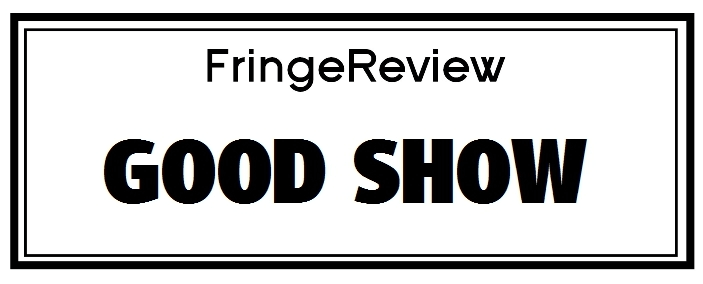Genre: Comedic

Review: Bette and Joan
Outstanding performances, an outstanding set too. As one director said, this production’s more compelling than the original 2011-12 seen touring at Brighton in 2012. The very intimacy of the space, with pitch-perfect acting, makes this an even finer vehicle for the play.

Review: Stitches
The end’s both poignant and visionary. A show to remember long after the Bear’s imagined batteries run down.

Review: Vanya
This is the greatest one-man performance I’ve seen, said a Chekhov-immersed director of 45 years’ experience next to me. Yes.

Review: Till the Stars Come Down
Even this early, it’s safe to predict we’ll look back at the end of 2024 and proclaim it as one of the year’s finest.

Review: The EU Killed My Dad
Do see this, preferably alongside its sometime co-runner The Beautiful Future is Coming. A dizzying theatrical gem.

Review: Boy In Da Korma
A necessary, engaging, original variation on finding your voice: and a theatrical coup. Acting, writing, directing, video, lighting and tech support, indeed singing are first class. A gem.

Review: 1979
Political history told in Mamet-fast satire, imagined conversations and accurate stats. What could be more thrilling? 82 minutes later you won’t ask why this three-hander is like curing New Year’s hangover with Red Bull, ice, something illegal and a vodka chaser.

Review: Oh What a Lovely War
Musically directed by Ellie Verkerk the six-strong cast play instruments throughout. They’re a phenomenal team, singing beautifully a capella or in solo. With six young actors mostly fresh out of drama school absolutely at the top of their first game, we’re treated to acting both hungry to prove and yet touched by the world they’ve entered. This is an outstanding production.
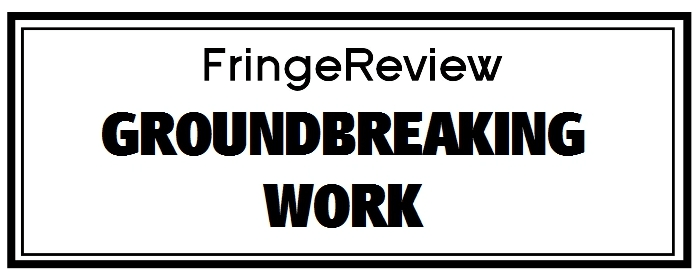
Review: Brief Life & Mysterious Death of Boris III, King of Bulgaria
Fringe-historical gold, which means very good indeed. It doesn’t mean Copenhagen, with Frayn’s subtle collisions and collusions. It’s a different, desperately joyous animal that signs its truth and shames the world.

Review: Humble Boy
A revelatory production of what we must now think of as a small masterpiece, where Ayckbourn and Chekhov echoes recede to Charlotte Jones’ uniqueness. Jones really deserves her place in the forefront of contemporary dramatists. Humble Boy confirms its own place, pivotal to her oeuvre which has grown more robustly and cleverly than the flora or indeed bees that ululate to the end.

Review: Infamous
Emma Hamilton, mother and ward. Expect spats. Nine months since her National Theatre Kerry Jackson opened, April de Angelis arrives at Jermyn Street with the three-hander Infamous, directed by Michael Oakley, till October 7th. Even though the earlier play was staged in the smaller Dorfman, Infamous is chamber music by comparison. As in Kerry Jackson, De Angelis avoids tragedy where it clearly offers itself. The final two scenes though offer more; it’s piquant, momentarily uplifting, a little sad. And dramatically right it’s expressed in dance.

Review: AFTER ALL
Weinachter is an interchangeable chameleon: not just a dancer, but a rare performer who can do it all! Her style and execution of ideas paints a beautiful memory of her idiosyncratic talents in exploring the beginning and end of life. Stunningly poignant.

Review: Nearly Lear
Mischievous charm, tragic depth, and hilarious wit, all fueled by an intense and energetic inventiveness. A Must See show
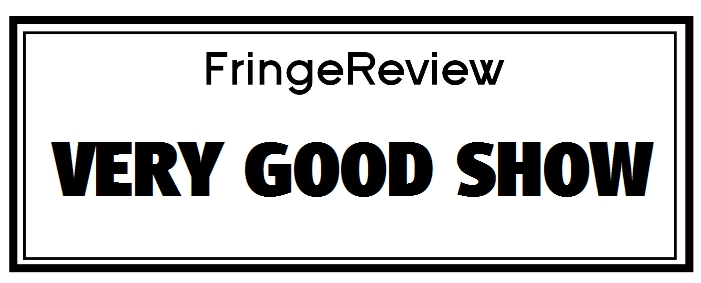
Review: Potty the Plant – A New Dark Comedy Musical
A light hearted pseudo-horror story with a few jibes at current affairs

Review: The Brief Life & Mysterious Death of Boris III, King of Bulgaria
King Boris of Bulgaria stands up to Hitler, accompanied by Bulgarian and Jewish folk music.

Review: Yippee Ki Yay
Die Hard re-telling, blended with Richard Marsh’s journey into fatherhood : Welcome to the party !

Review: Joe & Ken
Most of all, this couple capture the feel of the Orton/Halliwell exchange, the chemistry, the aromatic stink of sex from Craig Myles’ Orton, the sweat and self-disgust of Tino Orsini’s Halliwell. John Dunne’s created an Ortonesque, almost What the Dramatist Saw version of events. Orton might have liked that best. And Halliwell, narrating his own death in Orsini’s delivery, been appeased.

Review: The Madness of George III
Surely the Sarah Mann Company’s finest hour, overcoming the BOAT’s wondrous yet treacherous acoustics – and weather. Alan Bennet’s 1991 The Madness of George III is their most ambitious, most jaw-dropping production. This magnificent revival poses even more urgent questions. A twitch on the thread for all of us.

Review: Cheesy Cheesy Catchy Mousey
There’s surprises here you’ll discover. A superb landmark in Mark Daniels’ gifted exploration of Absurdism’s relevance. This isn’t deadly theatre, it’s quietly lethal to deathly assumptions everywhere. See it.

Review: Hope has a Happy Meal
A balloon dystopia announces Tom Fowler Hope has a Happy Meal. It’s a smiley killer-clown place with real clowns; very funny at times though charged with melancholy for what might have been. Despite one or two moments, Hope feels a solid world, rather than a sketchy work distended into a play. Fowler’s settling into himself, definitely both worth seeing and pursuing.

Review: The Goat
Martin Malone more than revives Edward Albee’s 2002 masterpiece The Goat, at the New Venture Theatre; he rethinks how we can receive it. An exemplary revival of a play Michael Billington named one of his 101 Greatest – even over Who’s Afraid of Virginia Woolf? Make up your own mind; see it. Martin Malone more than revives Edward Albee’s 2002 masterpiece The Goat, at the New Venture Theatre; he rethinks how we can receive it. An exemplary revival of a play Michael Billington named one of his 101 Greatest – even over Who’s Afraid of Virginia Woolf? Make up your own mind; see it.

Review: Fleabag
Original, raw, brilliantly funny and devastating. This production is Fleabag neat. Its harrowing streak of genius burns like a healing scar torn.

Review: Romeo and Juliet
It’s not just that Isis Hainsworth’s Juliet is the sun here, though her outstanding performance is the heart of this Romeo and Juliet. This is one of the most thrilling, sometimes harrowing Romeo and Juliets I’ve seen. Fittingly a world where sun and extinction flash and vanish, it’s the Shakespeare production of the summer.

Review: I Believe in One Bach
An absorbing, extraordinarily well-written short play on letting go of your identity, the part giving it meaning. It’s also excoriatingly funny. On a mundane level, it’s case of ‘work won’t love you back’; on another, to quote the Narrator, this work’s not a noun but a verb. In addressing how we live up to the transcendence we create for ourselves, it affirms the unanswerable. The finest new short play of the fringe.

Review: A Brief List of Everyone Who Died
“Death is the most natural thing in the world.” Not to five—year-old Gracie, whose life of resistance as Gracie, Grace but mostly Graciela Jacob Marx Rice traces in A Brief List of Everyone Who Died. Yet again Finborough have mounted – and nurtured – a first-class work miles from larger fare that fades. Do rush to see it.
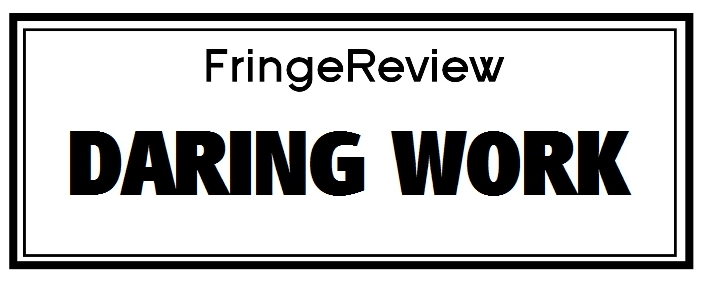
Review: Bloody Medea!!!
Physical comedy debut by April Small; with a bit part for Zeus, puppet-deaths and an elephant themed singsong.

Review: My Brilliant Divorce
Like any first-rate actor, Louise Faulkner lets each eyebrow rise and fall: Quizzical, hurt, amused, they all register. A work to be savoured for its exuberant telling of one of the most painful things to hit any of us, through nightmare to laughter to loving oneself, to the hope of love. Highly recommended.

Review: Home, I’m Darling
There’s a clever containment in Home, I’m Darling that reminds us yet again of Laura Wade’s lucidity and power. Since she’s written it, it seems more like a prophesy.

Review: The Winter’s Tale
An enormously satisfying reading that happens to be groundbreaking. It’s Sean Holmes’ finest production yet.

Review: Out of the Frying Pan
If you know Judy Upton as a playwright you might have an inkling what to expect in this debut fiction. Witty, observant, self-deprecating, very funny, full of subversive glee, with its own moral field. I’d put nothing past this extremely gifted writer

Review: Lemons Lemons Lemons Lemons Lemons
Think Nick Payne’s Constellations meets Duncan Macmillan’s Lungs. If you love new theatre, queue for returns.

Review: Beginning
Beginning is the kind of play we all know we need: wincingly heartwarming, devastatingly joyous. It’s quite wonderful. Don’t miss it.

Review: Dance of Death
A hectic in the blood of 20th century drama. Its just here the hectic is realised like never before.

Review: BLACK SUPERHERO
Sharp, shapely dialogue, sizzling humour, ambitious theatricality a compelling story wrapped in baggy metaphors. There’s never a moment when the play’s proved less than engaging, sometimes riveting. A must-see debut play.

Review: Titus Andronicus
One of the Globe’s most lucid recent productions; and the most consistently-realised aesthetic. It knows what it is: a stunningly thought-through, musically inspired production.

Review: Fisherman’s Friends: The Musical
A glorious night out, a wonderful cast and in Shahmir a mesmerising star in the making.

Review: Romeo and Julie
A gentle, heart-warming, occasionally hilarious play, and strikes a fresh redemptive note in Gary Owen’s work. Callum Scott Howells and Rosie Sheehy blaze across this play like meteors inexorably entering the earth’s orbit, seemingly doomed to break up or worse. And did I say it showers screamingly funny one-liners too?

Review: Steel Magnolias
Uniquely moving, it’s a night worth anyone’s time, and its truths that resonate long after the curtain.

Review: Rocky Horror Show
The most lucid-voiced Rocky I’ve seen and on balance strongest cast for a long time. Two great reasons to return, or adventure for your first awakening on Planet Transexual.

Review: The Seagull
A Seagull for the initiated, a meditation rather than the play itself, it’s still a truthful distillation, wholly sincere, actors uniformly excellent

Review: Morning Glory
A small masterpiece of amused, unflinching reveal, which does something no-one else has done at all.
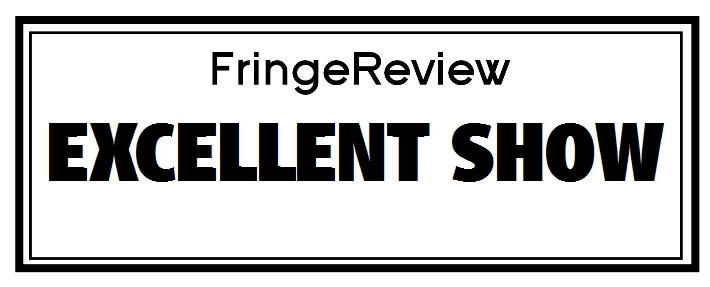
Review: An A to Z of Fish and Chips
"a pleasing show that may just leave you restless to plunge a little wooden fork into a saveloy."

Review: Daniel Cainer: More Jewish Chronicles (and Other Musical Stories)
Creative, entertaining, relatable - performed by the personable composer and musician of these original story-songs - a very enjoyable way to spend an hour!

Review: The Girl Who Was Very Good At Lying
An outstanding powerful, imaginative and funny exploration of the stories we tell to escape who we are and where we are.

Review: Will Tell and the Big Bad Baron
A great family show: energetic, pacey with plenty of opportunity to join in and let off steam.

Review: Around the World with Nellie Bly
An intrepid 19th century traveller in the hands of a first class 20th century story teller. A perfect reminder than adventures aren’t just for boys!

Review: Harry Potter or My Girlfriend… Who Do I Love More?
A very funny hour in the company of a comedy wizard

Review: War of the Worlds (On a Budget)
The unmissable, definitive version of a a budget-driven War of the Worlds

Review: All Of Us
As Ken Tynan once said of another debut, I don’t think I could love someone who doesn’t love this play.

Review: Cancelling Socrates
Howard Brenton touching eighty is at the height of his powers. Tom Littler has assembled a pitch-perfect cast, reuniting two from his outstanding All’s Well. This too.

Review: Airswimming
Superb revival of Charlotte Jones’s play about two women incarcerated for fifty years for bring different. With a standing ovation of such force that convention had to be broken with the actors forced back on stage.

Review: Moral Panic
A film censor navigates turbulent times in his work and at home - a comic one-hander with some horror thrown in.

Review: A Very Great Mischief
Winner of the Rialto New Writing Scratch 2020. Look out for this play when it returns.

Review: Now That’s What I Call A Lot Of Songs About Science
John Hinton performs hilarious songs of science from a very extensive repertoire

Review: Cocky and the Tardigrades
Bonkers brilliance. Cocky couldn’t have been premiered with two more stunning actors, and the author’s flawless stepping-in remains remarkable.

Review: Spirit of Woodstock 2 – The Sequel
There’s no greater writer/performer working in Brighton, or Sussex, and Spirit of Woodstock Parts I and 2 is Jonathan Brown’s most dazzling show to date.

Review: The Marriage of Alice B. Toklas by Gertrude Stein
Such exquisite works find their time; speak to it again and again and again.

Review: Dark Sublime
Sublime acting, light-filled production. Do see this quirky, off-beat play given its finest outing so far.

Review: The Tempest
Do see this Tempest, not only subtly outstanding, but pulsing with human connectivity and warmth.

Review: Di and Viv and Rose
A first-rate revival of this heartwarming play, surprising you with grief, and joy

Review: Black Diamonds and the Blue Brazil
An enticingly dramatic radio play which seeks successfully to bring the drama of lower league football to a much wider audience.

Review: The Merchant of Venice
This production needs a run. It’s potentially a great interpretation.

Review: Dracula
You should see this with some fine acting and a storyline making more sense of Dracula than Stoker does himself.

Review: Staircase
A first-rate revival of a play that with its ostensible shock-value in aspic, reveals subversions and a clever structure so unsettling we should all look in the mirror and wince.


















